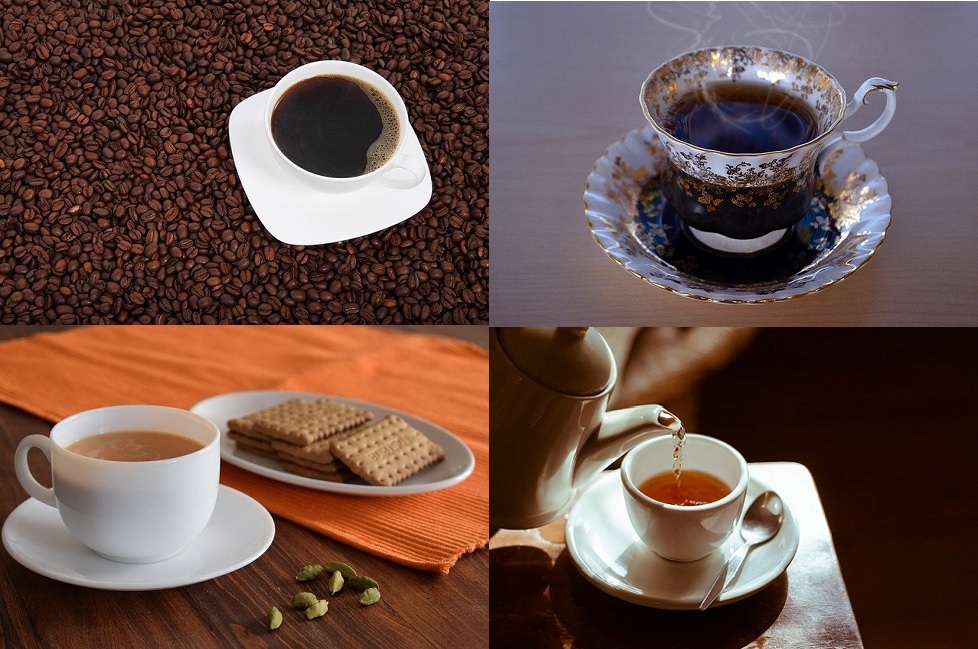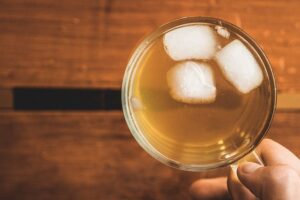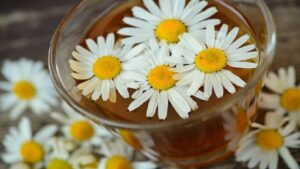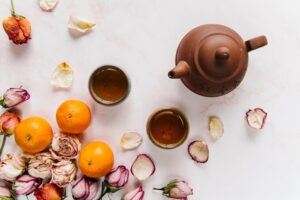Is there caffeine in tea?
Caffeine is part of our daily diet, whether we are aware of it or not. We all know that coffee contains caffeine. Do you know, your cup of tea does contain caffeine?
Or if you are wondering to know about how much caffeine does tea has? This article is for you; here, you will get the answer to some of your questions regarding the content of caffeine in teas.
What is caffeine?
Caffeine is a psychoactive element found in tea, coffee, cocoa, guarana, and many other products. It is a natural stimulant and bitter.
The function of caffeine is to stimulate the nervous system, raise blood pressure and prevent sluggishness. It makes the body stay alert and awake. Besides, for many people, this psychoactive substance improves their physical performance and enhances muscle power. But the effect of caffeine is different for each person. Overall we can say, caffeine works physically and mentally.
While caffeine is natural and safe to consume, overconsumption can result in adverse reactions to the body. Children, toddlers, or pregnant women should avoid its use. Moreover, adults are also recommended to take no more than 400mg a day.
What affects the caffeine content in tea?
Many factors determine the level of caffeine in the cup of tea.
- All tea types have varying levels of caffeine, although they all derive from the same plant. It happens because the processing and harvesting method of each tea is different. The more oxidized the leaves, the more caffeinated they will be.
- Another factor depends on you: the amount of tea leaves you to use in your tea. More tea leaves mean more caffeine, and the fewer will make a less caffeinated cup of tea.
- The places where tea leaves are grown or the origin of tea influences the caffeine content. Each area has a different atmosphere, soil quality, and water, which impact the contents of tea, including caffeine.
- How much time you brew the tea leave increases or decrease the caffeine in tea. The tea steeps or brews for a longer time add more caffeine to the teacup. Conversely, if you brew for less time, tea will be less caffeinated. Thus, preparation of tea is crucial to consider.
- Water temperature is another important factor. As compared to water at low temperatures, hotter water tends to release more caffeine from tea.
How much caffeine is in green tea?
Green tea leaves are less oxidized, which leads to having less caffeine in this tea type. There is around 30mg caffeine in a cup of green tea, less than black tea.
But matcha green tea powder has a much higher caffeine content than normal green tea because its harvesting and preparing process is different from green tea. Similarly, oolong tea is another tea type that is less oxidized and has few contents of caffeine, around 10 to 50mg.

How much caffeine does black tea have?
Of all tea types, black tea is a widely consumed and robust flavoured tea. Black tea is potent, strong, and more oxidized than all tea verities. The speciality of this tea is its flavour which can remain for years.
A cup of black tea contains around 46mg caffeine content; the quantity is different as per the steeping time and the temperature of the water. Some also like to add some spices to enhance the flavour of black tea, which also influences the caffeine level. But generally, it does not make a big difference.
Even though black tea contains the most caffeine, it is considerably less than coffee.
How much caffeine does chai tea have?
The same tea leaves are used to make either Chai tea or black tea, but their caffeine content is different. Chai is less caffeinated as compared to black tea.
Chai tea prepares with black tea leaves, milk, sugar or honey, and some traditional tea spices. The caffeine content of milk teacup has approximately 26mg, less than plain black tea.
The caffeine content in herbal teas
As the name suggests, herbal teas are made up of different parts of herbs. These teas do not make with the Camellia Sinensis plant, which is the source of other teas: green, black, white, and oolong. Therefore, herbal tea hardly has caffeine until these are blended with other teas.
Some herbal teas are a pure form of herbs, whereas others mix with green tea. Herbal teas can contain some caffeine when infused with green or black tea. However, this level is quite minimum.
Tea vs coffee
No matter how much tea leaves you to add to your teacup, it can hardly compare to the caffeine content in coffee. The caffeine level in coffee is significantly higher than in tea because coffee beans contain far higher caffeine.
Generally, a cup of coffee contains 95mg of caffeine. But similar to tea, the caffeine content in coffee is also influenced by coffee varieties and the preparation method. Besides, each coffee type has different caffeine content.
Coffee gives us instant energy as its caffeine absorbs quickly in the body whereas, caffeine in tea absorbs slowly and makes you less jittery. It is also a reason why tea leads our body to stay alert and awake for a longer time.
Both these drinks’ decaf varieties are available. Try them if you are caffeine sensitive or want to cut your caffeine intake.
Bottom line
Health experts recommend not consuming more than 400mg of caffeine in a day; otherwise, it could be harmful to the body. However, the amount varies as per the body requirement of a person.
Caffeine-sensitive people can turn to less caffeinated drinks: green tea, white tea, oolong tea, and decafs coffee. The steeping time also affects the caffeine in tea and coffee. So, if you prefer less caffeine, be careful while steeping your tea next time.






